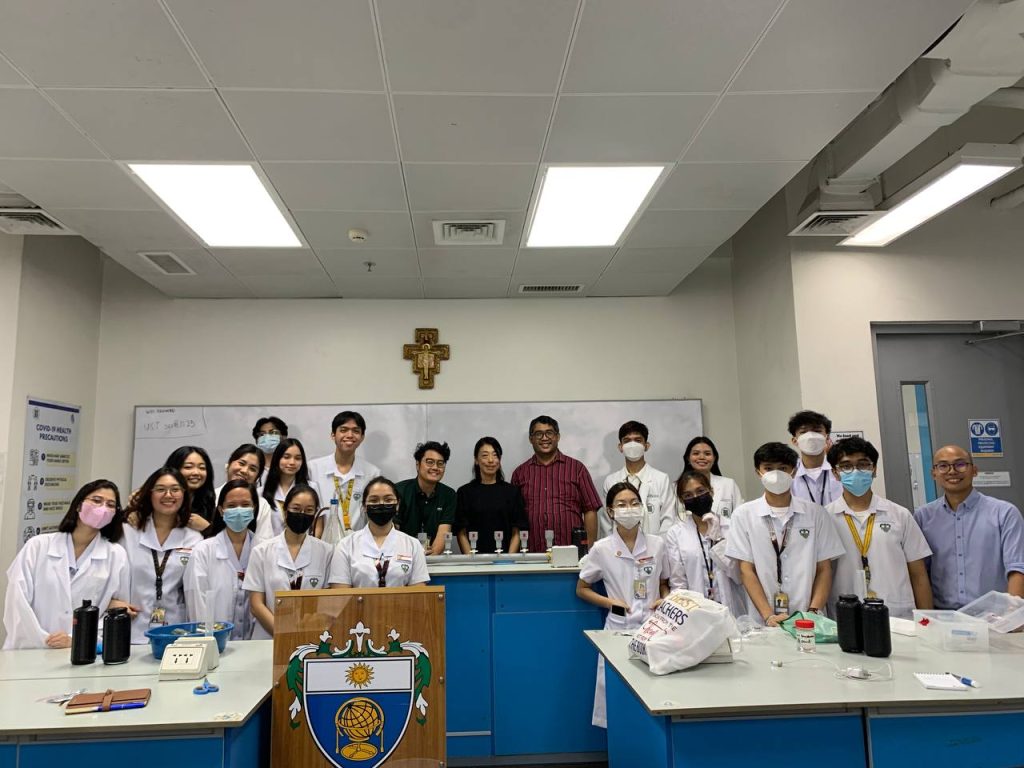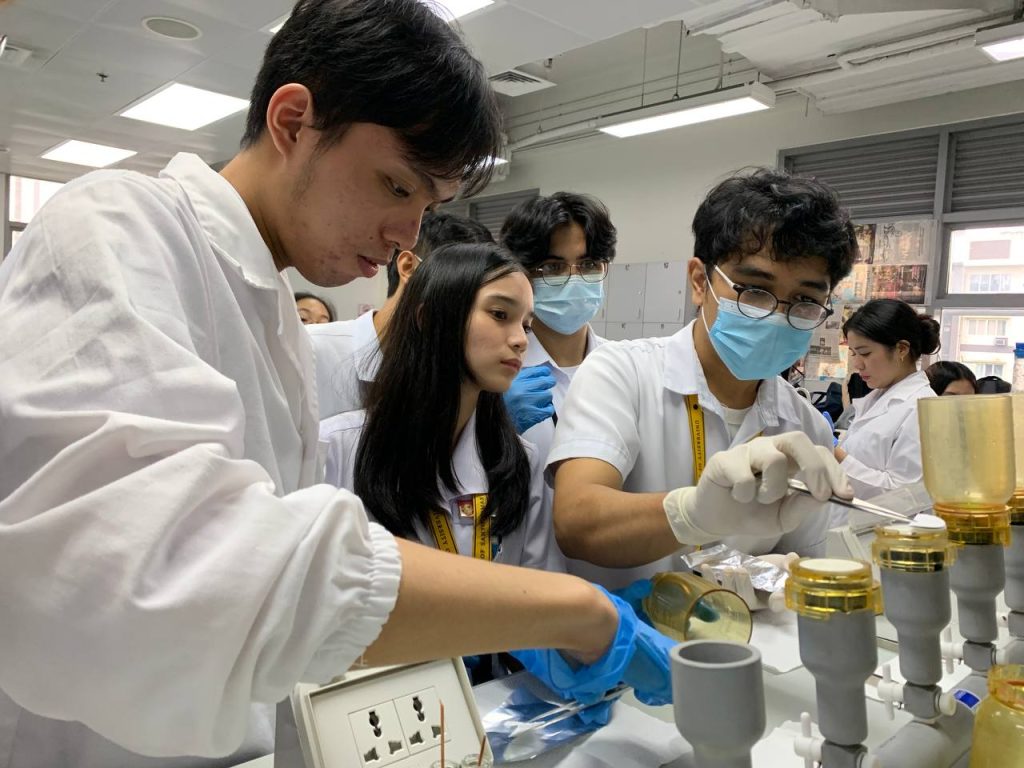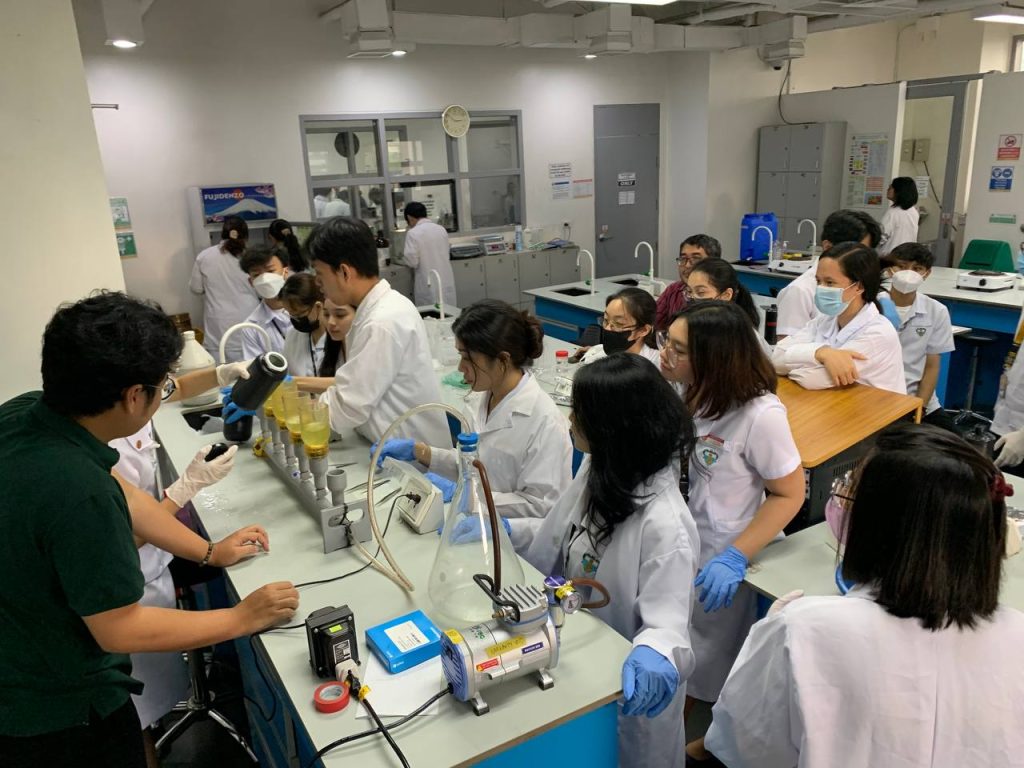The Department of Biological Sciences and the Research Center for the Natural and Applied Sciences through the DOST-JSPS funded Project TroPaYan headed by College of Science academic staff Mr. Elfritzson M. Peralta, conducted a lecture-workshop on eDNA technology and its application, titled “Detection of parasites in ecosystems (DOPE): A lecture-workshop on eDNA applications in aquatic research” on October 27, 2023 at the Central Laboratory Building.



This event, which is one of the main activities under the countdown to the centennial celebrations of the UST College of Science, highlights the strong partnership between the University of Santo Tomas, the University of Shiga Prefecture (USP) and Kyoto University (KU).
The participants included academic staff, students of the undergraduate and graduate Biology programs of the College of Science and the Graduate School, government researchers, and research staff of DOST funded research projects housed in UST. Peralta introduced the project’s objectives, members, and goals, emphasizing the significant partnership with USP. The lectures included presentations by Dr. Karin Tsuchida (Kyoto University), introducing molecular techniques to parasitology, Dr. Shoko Hosoi-Tanabe (USP), discussing the fundamental concepts of eDNA research, and Dr. Misako Urabe (USP) presenting the application of eDNA technology in animal parasitology.
The afternoon session was facilitated by Peralta along with UST academic staff Mr. Kenneth Xavier Sanchez, M.Sc. and Dr. Hosoi-Tanabe where they conducted a hands-on workshop on eDNA sampling and processing methods. Students were given the opportunity to experience the preparation of sampling materials, actual water sampling, and filtration techniques. Participants were reminded of the practical applications of eDNA and the research opportunities available for those willing to explore this new field of science.
The event provided a platform for skills training and knowledge transfer for research-oriented students, early-career researchers, and seasoned experts in the field. The project envisions to incorporate and utilize the use of eDNA for applied research in biodiversity conservation and environmental management.




